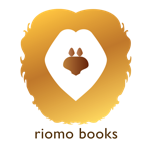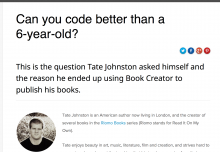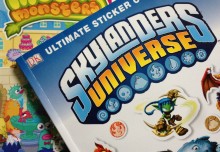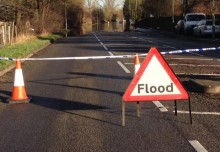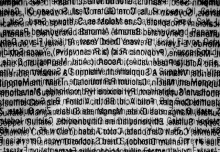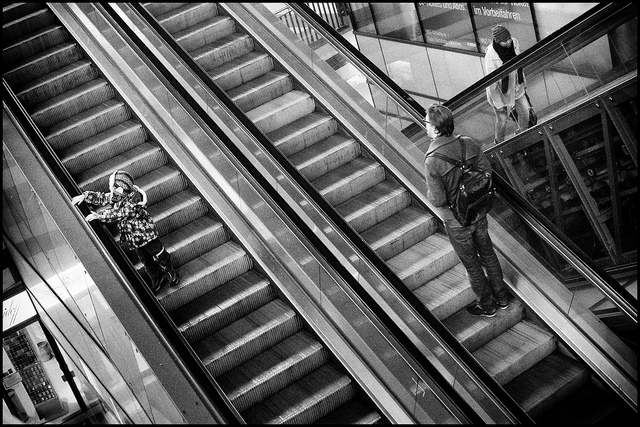
Trying to Climb Up the Down Escalator
In their excellent book, Switch: How to Change When Change is Hard (highly recommend!), Chip & Dan Heath describe the power of identity in hindering or facilitating change. They state that “[a]ny change effort that violates someone’s identity is likely doomed to failure.” When deciding what to do or not to do, we subconsciously ask ourselves: What kind of person am I? What does that kind of person do? How we see ourselves directly impacts our actions and efforts.
When it comes to learning to read, do your children or students view themselves as readers or as non-readers? If they think of themselves, consciously or subconsciously, as non-readers or say to themselves, “I’m not a reader. I can’t read.” or “I’ll never be able to read.” your efforts to teach them to read are like trying to get them to climb up the down escalator.
Turning the Down Escalator Off
Is there a way to turn the down escalator off, so that learning to read becomes like climbing stairs instead? Yes, there’s going to be effort involved, but at least the effort will lead to forward progress.
Try this:
Ask your kids to pick which of these two statements is true of them:
A: I’m a reader.
B: I haven’t learned to read yet.
No matter if they answer A: I’m a reader or B: I haven’t learned to read yet, you are helping them develop a frame of mind to read. They have either self-identified as a reader (and what do readers do?), or they have spoken with words that cultivate what Carol Dweck calls a “growth mindset” in her book: Mindset: The New Psychology of Success (also highly recommend!), words which imply that reading is a skill that they can learn.
Instead of making option B “I’m not a reader,” or “I can’t read,” both of which are definitive and feel permanent and defeating, stating that they haven’t learned how to read yet utilizes two very powerful words that facilitate a growth mindset: learn and yet. Instead of defining themselves with permanent traits, “I’m not a reader.” or “I’m terrible at reading,” they are agreeing that reading is something that is learned and defining themselves in terms of future potential to acquire a new skill.
Up the Up Escalator
If they answered B, it may be because they simply thought, I’m not a reader, so I can’t be A. But what if, in addition to having a growth mindset, they did see themselves as readers? Adapting a question from the Heath Brothers, ask yourself: “How can you make [learning to read] a matter of identity rather that a matter of consequences?” (Where consequences are costs and benefits, sticks or carrots.)
Try this: ask them why they didn’t answer “A: I’m a reader.”? What makes them think that? Or ask: If a detective didn’t know you, but could watch you for a day or a week, what clues would the detective find that would help them solve the mystery of whether you’re a reader or haven’t learned to read yet. Can your learner think of any clues? Can they find any evidence that they are a reader? If not, you become the detective. Say: “If I were a reading detective, here is a clue that I have found that you are a reader …” Maybe they can read single letter words: A or I. That makes them a reader. What about two letter words: no, at, or, up? Reader. How about: “I am.” or “It is.” Those are whole sentences! Reader. Sentence Reader, in fact. Can they read a page of Ed Egg vs. Peg Leg Egg? Page Reader. Can they read all of Fat Cat vs. Bad Bat? Book Reader!
Twin Engines
If you combine and utilize these two powerful concepts of identity leading to action and of cultivating a growth mindset, teaching your kids to read can become like helping them walk up the up escalator, and then hopefully, eventually, like giving them twin engines with which to take flight. When they encounter new and more complex words, sentences and books, they can rise to the challenge, saying: “I’m a reader, but I haven’t learned how to read this … yet.”
Up, up and away!
Download the Free “I’m A Reader” Detective’s Clues Sheet or “I’m A Reader” Golden Lion Certificate.
[Image by: Benjamin Stäudinger]
2 Comments
-
Thank you for these extremely encouraging articles! I really appreciate your insight
and am going to use your tips to help my daughter with her mindset!
Thank you, Tate!!!-
Author
Thank you, Marianne! I’m so glad you’re encouraged.
-
